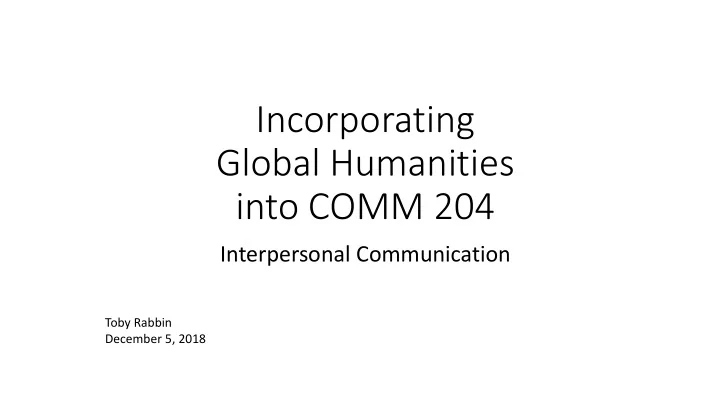

Incorporating Global Humanities into COMM 204 Interpersonal Communication Toby Rabbin December 5, 2018
“The Big Idea” Replace an ethnocentric perspective with an ethno-relative one. Rather than assuming we are all the same (leading us to judge others who are different as “wrong”), this approach assumes we are all different (leading us to be curious about why).
Global Competencies • Knowledge • Understanding of the diversity found in the world in terms of values, beliefs, ideas, and worldviews • Move across boundaries and see the world from multiple perspectives • Explain one’s culture in global and comparative context, recognizing that this culture is one of many diverse cultures and that alternate perceptions and behaviors might be based on cultural differences. • Attitudes • Sensitivity and respect for personal and cultural differences • Display curiosity and openness toward new ideas and ways of thinking • Self-awareness and self-esteem about one’s own identity and culture • Skills • Skills to enhance the ability to learn about the world (information-gathering interviews, qualitative research)
Prepare
Ethnocentrism vs. Cultural Relativism
How Values are Reflected in a Culture • How elderly are treated • How teachers are treated • Styles of housing and architecture • Foods that are considered delicacies • Major holidays/festivals • Appropriate clothing in public • Proverbs • Nonverbal language (expressive or reserved)
Learn
Part 1: Interview
Part 2: Research
Part 3: Experience
Share
Recommend
More recommend